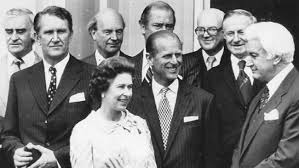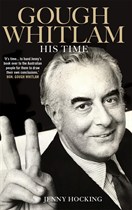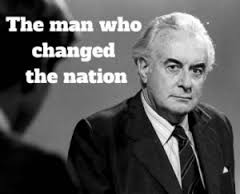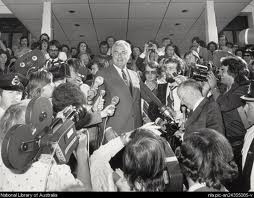Elders Part One
This article appeared in Ceylon Today on Thursday June 25 2015.
Elders Time Bomb
Over thirty years ago, I worked for Sir Arthur Armitage at the Social Security Advisory Committee in New Court, London. One major issue that SSAC was grappling with even then was the problem of an ageing population. Now that I am part of the problem rather than someone looking for a solution, the issue seems more acute to me. I was part of that cohort born after the Second World War known as baby boomers. The post-war surge was then followed by a fall in birth rates, which means there are not enough people of working age to support we oldies in our twilight years.
Population ageing arises from two demographic effects: increasing longevity and declining fertility. In all human history, the world has never seen as aged a population as currently exists today. This is the case for every country in the world except the 18 countries designated as “demographic outliers”.
Who Pays?
Today, for the first time in history, Britain’s over-65s now outnumber people under the age of 16. Many people in the UK labour under the misapprehension that they are paying for their own pensions through income tax and national insurance contributions. The number of contributions I made while working governed the amount of pension I receive. However, the pension I currently receive does not come out of a kind of savings account in my name. People working today pay my pension. There are currently four people of working age supporting each pensioner in Britain; by 2035, this number is expected to fall to 2.5, and by 2050 to just two. The number of people of working age in relation to retirees is known as the ‘dependency ratio’. Future pensioners might not have anyone to pay them.
The current UK government seems to be protecting pensioners by making severe cuts in other public spending. They have made clear that they believe they need to make significant savings from working-age benefits. Chancellor George Osborne has said he will press ahead with hefty cuts to welfare despite tens of thousands engaging in protest marches against austerity. Iain Duncan Smith said the Conservative government would go ahead with plans to cut welfare spending by 12 billion pounds, out of an annual budget of 220 billion pounds. Cuts under consideration included banning people aged under 25 from claiming housing benefit and restricting tax credits to a couple’s first two children.
Sri Lanka
Sri Lanka already has the highest proportion (13%) of old people in South Asia; this is expected to rise to 20% by 2031, 25% by 2041 50% by 2050. At the same time, the proportion of working age people will progressively decrease. Longer life expectancy and improvements in health care means that people are enjoying many more work free years after retirement than used to be the case. The down side of better life expectancy is that there are more very old people who need care because of dementia and general exhaustion of the soft machine that is the human body.
Business Opportunity
In the UK, many saw the ageing population as a business opportunity. That would be fine if a decent professional service were provided at a fair price- there is no ethical dilemma in entrepreneurs making an honest profit by relieving the state (or individual families) of the burden of providing care. Unfortunately, it did not always work out that way. Even as long ago as the early 1970s, many dodgy operators caught on to the potential of a captive market. Even today, one finds countless internet sites advising how to set up a business caring for elders. Here is one random example:
http://franchises.homeinstead.com/franchise-opportunity/Pages/Why-Home-Instead-Senior-Care.aspx
Abuse
Traditionally, elders were cared for within the family. This did not protect them from abuse and even today, many today suffer even when living at home at the hands of family members or professional carers. A study conducted by Agewell Foundationrevealed that 25-30% of older Indians are suffering abuse, mistreatment and even torture in old age. The study said only about only five per cent of those mistreated complained to the police or any other authorities.
Figures released to mark World Elder Abuse Day on June 15, show that in Ireland more than 13,000 cases of financial abuse were reported up to the end of 2013. Financial abuse is the second most common form of mistreatment and is most often perpetrated by a family member. The day also brought revelations from Age Concern New Zealand that abuse of old people in that country was an “epidemic”. They get an average of eight calls every working day about alleged elder abuse. Many more cases are reported to health providers, the police, lawyers, community support organisations and other prevention services.
Profit without Care
One entrepreneur website says: “In-home care and assisted living is essential as we get older. If healthcare is your passion, consider owning your own senior care franchise business.” Too often, the passion was for making money rather than providing care. The UK government allowed care homes to directly receive the pensions of residents from the state.
There has to be a worry that businesses providing care for profit might put profit before care and that abuse might take place undetected. Care homes for adults in England are regulated by the Care Quality Commission, which has a remit to inspect each care home at least once every three years. This has not prevented many instances of abuse being reported in the press.
The charity Action on Elder Abuse (AEA) claims that over 500,000 elderly people in the UK suffer abuse and that women are particularly vulnerable. The five common types of abuse are physical, psychological, financial, sexual abuse and neglect. Often these abuses are also crimes. “it is important to think in advance about ways in which someone can reduce the possibility of abuse, by avoiding isolation or dependency, and by having more than one person keeping an eye on matters. Reliance on others does not mean having to be dependent on others. Thinking about self-protection is more about commonsense than about being distrustful.”
Old Deanery
In April 2014, the BBC Panorama programme secretly filmed a 98-year-old woman, in Oban House care home in Croydon, crying out for help 321 times over a whole hour. She died less than a month later. Two members of staff were convicted of common assault. Secret filming inside the Old Deanery home in Braintree, Essex showed a staff member slapping a partially paralysed woman who suffers from dementia. A Panorama reporter worked undercover as a care assistant and saw “rough handling” of residents, calls for assistance repeatedly ignored, and elderly people goaded and left to sit or lie in their own mess. Residents were ignored, call-bells were unplugged and one man in his 80s was repeatedly called a “bitch”. Inspectors gave the home a glowing reference around the same time. CQC CEO Andrea Sutcliffe said the treatment was “unacceptable” – but said inspectors could not be expected know “what goes on behind closed doors”.
The Granary
The Old Deanery home charges £700 a week. The Granary in Somerset charges £800 per week. A judge at Bristol Crown Court barred Daniel Baynes, Tomasz Gidaszewski and Janusz Salnikow, employees at The Granary, for life from working with vulnerable adults. Footage from a camera, secretly placed in her room by her son, showed an 87-year-old woman with dementia being pushed around on a number of occasions while she was subjected to a tirade of verbal abuse. Baynes admitted stealing food and was jailed for four months. Salnikow was given a suspended jail sentence, while the others were given community orders. AEA had written to the attorney general’s office calling on him to review the sentences handed out to the three men. AEA argued that what the men did was “appalling” and that the sentence “did not convey the seriousness with which the public view such abuse”, and “will not act as a deterrent”.
I was prompted to look into this subject following a recent trip to Colombo to rescue my wife’s Aunt from abuse. I will look into the issue of abuse of elders in Sri Lanka in next week’s column.


















